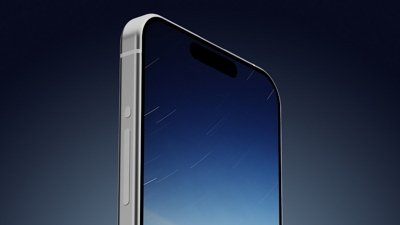Apple reiterated its initial stance that it did not collude with five major book publishers to artificially inflate the prices of e-books sold through the iBookstore in an attempt to dethrone market leader Amazon, reports Reuters.
"For Apple to be subject to hindsight legal attack for a business strategy well-recognized as perfectly proper sends the wrong message to the market," the company said in Tuesday's court filing. "The government's complaint against Apple is fundamentally flawed as a matter of fact and law."
Going further, Apple claims it created an option to Amazon in a veritable vacuum of competition, alluding that the lawsuit could discourage new entrants to the market and thus be harmful to consumers.
"Apple's entry into e-book distribution is classic procompetitive conduct," Apple said.
From Apple's filing:
The Government sides with monopoly, rather than competition, in bringing this case. The Government starts from the false premise that an eBooks “market†was characterized by “robust price competition†prior to Apple’s entry. This ignores a simple and incontrovertible fact: before 2010, there was no real competition, there was only Amazon.
The DoJ first filed suit against Apple in April, alleging that the company colluded with Simon & Schuster, Hachette, Penguin, Macmillan and HarperCollins to fix the price of e-books under the so-called "agency model."
In short, the agency model allows publishers to set content prices in exchange for a "most favored nations clause" that bars the houses from selling e-books to competing retailers at lower prices. The strategy is diametrically opposed by the "wholesale model" used by Amazon which lets resellers incentivize purchasing by offering products at below-cost prices.
The Justice Department asserts that the alleged collusion cost e-book buyers millions of dollars on particular popular titles since the iBooks launched alongside the original iPad in 2010.
"Apple’s entry spurred tremendous growth in eBook titles, range and variety of offerings, sales, and improved quality of the eBook reading experi- ence. This is evidence of a dynamic, competitive market. These inconvenient facts are ignored in the Complaint," Apple said. "Instead, the Government focuses on increased prices for a handful of titles. The Complaint does not allege that all eBook prices, or even most eBook prices, increased after Apple entered the market."
Earlier in May it was revealed that the government had cited an email from Apple co-founder Steve Jobs as a proof that the companies conspired to boost fair market prices, though the Cupertino company denied that the quote was "accurately characterized."
Fighting alongside Apple are publishing houses Macmillan and the Penguin Group, while HarperCollins Publishers, Simon & Schuster and Hachette Book Group all settled out of court.
 Mikey Campbell
Mikey Campbell







-m.jpg)






 Wesley Hilliard
Wesley Hilliard
 Christine McKee
Christine McKee
 Amber Neely
Amber Neely
 Marko Zivkovic
Marko Zivkovic
 Malcolm Owen
Malcolm Owen

 William Gallagher
William Gallagher









156 Comments
Apples' "Agency Model" encouraged a wider selection of e-books to be released coincident with the conventional hardback books. Prior to Apple's entry into the field, publishers withheld new titles from the ebook market.
The DoJ's arguments are hard to follow, in that the consumer is free to purchase from Amazon or Apple. If the DoJ is eager to prosecute, it should be considering suit against Amazon for predatory pricing. It routinely sells books at or below cost, driving traditional retailers, from giants like Borders to the local "Mom & Pop" to bankruptcy. This is classic market manipulation, and reminiscent of the tactics of Rockefeller's Standard Oil.
I guess that when a company gets to be as successful as Apple, we have to expect overeager and ambitious prosecutors to attack.
Unfortunately, they are attacking a great American company, and doing it with our tax dollars.
So what other industries should also become subject to DoJ enforced Government set pricing models?
I thought America was a land of free enterprise.
Collusion kept prices artificially high and that didn't hurt consumers? But a lawsuit hurts consumers.
Yes, competition usually results in lower prices. But, Amazon is always trying to be the low price leader. So I don't see that with this type of competition, the consumer is better off.
Lol, they have some nerve saying it could harm consumers when they are responsible for a close to 40% increase in ebook prices, why don't they just act like good boys and settle like 5/6 publishers have done already? The are more in the news these days about their lawyers than about their products. And the doj has a very good case indeed,maybe their smart ass lawyers should remember what happened to Microsoft, before they dragg apple into this. Apple hurt both the consumer and the competition here, and the evidence of collusion is pretty damning, they probably wouldn't want more publicity on this...
Collusion kept prices artificially high and that didn't hurt consumers? But a lawsuit hurts consumers.
Look at the facts. If Amazon had been allowed to sell for such low prices, then they would have raised them in the long run. Apple did us all a favor by making Amazon charge a little more now, instead of a lot more later.
But the government won't let any good deed go unpunished, especially if it is Apple.